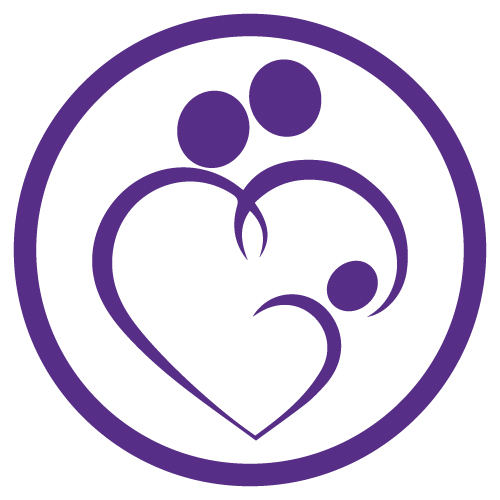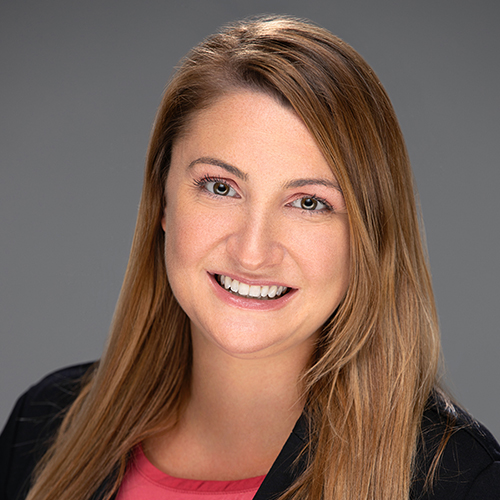 IBCLC Detailed Content Outline: Development and Nutrition Focused CERPs - Section I
IBCLC Detailed Content Outline: Development and Nutrition Focused CERPs - Section I
Access CERPs on Development and Nutrition for the IBCLC Detailed Content Outline recertification requirements. Enjoy convenient on-demand viewing of the latest Development and Nutrition focused IBCLC CERPs at your own pace.

Current Trends in Identifying and Managing Neonatal Diabetes Mellitus

Tiffany Gwartney, DNP, APRN, NNP-BC, is an Assistant Professor at the University of South Florida (USF), College of Nursing. In addition to her neonatal clinical practice at Nemours Children’s Hospital in Orlando, Dr. Gwartney has been an Assistant Professor at USF since May 2015, where she has written and deployed experiential learning modules for the evidence-based practice course for undergraduates, integrated delegation simulations for undergraduate leadership students, and taught sim labs for the women, children & families course. Her most recent work was the implementation of a simulation regarding nursing interaction with a maternity couplet who was under airborne precautions, while in full personal protective equipment. This simulation was integrated into her COVID Care Education Module in which undergraduate students in their final practicum participated in a pilot program at designated clinical partner sites, providing bedside care for patients with COVID-19 disease. Her research interests include education, neonatal diabetes, role transition for novice Neonatal Nurse Practitioners (NNP), simulation, management of high-risk newborns in the delivery room, and couplet care for mothers with COVID-19. Dr. Gwartney has had several opportunities to speak internationally regarding the benefits of deliberate routine practice of high acuity, low-volume technical skills, and nationally regarding neonatal diabetes and conflict management. She is a member of Sigma Theta Tau (Iota Chapter) and is actively involved in several neonatal professional organizations: Florida Association of Neonatal Nurse Practitioners, Council of International Neonatal Nurses [education committee member], National Association of Neonatal Nurses [member], and The American Academy of Pediatrics [member, conference planning committee]. Dr. Gwartney enjoys traveling for pleasure but has also found herself working triage in a children’s clinic located in the remote village of Zapote, Guatemala, as well as educating NICU nurses in Paisley, Scotland and Shanghai, China.
Neonatal Diabetes Mellitus (NDM) is defined as persistent hyperglycemia (>200 mg/dL) that requires insulin treatment and occurs before six months of age (Habeb et al., 2020). While the incidence of neonatal diabetes is merely 1 in 90,000 to 160,000 live births, the rarity of this disease can make diagnosis challenging and potentially result in delayed treatment (Letourneau et al., 2017). Uniquely set apart from type I diabetes by its strictly genetic etiology, NDM can be associated with developmental delay and epilepsy (DEND). Insulin is a growth factor that is critical for optimal growth. Insulin dependence can be permanent or transient. Management of NDM includes insulin followed by stabilization using oral sulfonylureas (Hattersley et al., 2018). Positive outcomes are contingent upon early diagnosis, euglycemia, early interventions including multidisciplinary involvement, rehab services and parental support with regard to hypo/hyperglycemia management and insulin administration. The purpose of this presentation shall be to describe the etiology, pathophysiology and clinical presentation of NDM, discuss clinical management strategies, and recognize the importance of a multi-faceted, inter-disciplinary approach to caring for an infant with NDM.

View Details / Enroll

Developing An Action Plan for Mammary Hypoplasia: Improving our Understanding to Optimize Care

Lisa Marasco has been working with breastfeeding mothers for 35 years and has been Internationally Board Certified since 1993. She holds a Master’s degree in Human Development with specialization in Lactation Consulting and was designated a Fellow of ILCA in 2009.
Lisa is co-author of Making More Milk: The Breastfeeding Guide to Increasing Your Milk Production, a contributing author to the Core Curriculum for Interdisciplinary Lactation Care, and a Cochrane Collaborative author. She is employed by WIC of Santa Barbara County while she continues to research, write and speak. In addition, Lisa is affiliated with La Leche League of So. Calif/Nevada, and serves on the Breastfeeding Coalition of Santa Barbara County.
Topic: Deciphering the Lactation Curve - [View Abstract]
Topic: Developing An Action Plan for Mammary Hypoplasia: Improving our Understanding to Optimize Care - [View Abstract]
Topic: Getting a Better Grip on Prolactin - [View Abstract]
Topic: Recognizing When Things Are Heading South - [View Abstract]
Topic: The Mysterious Milk Ejection Reflex - [View Abstract]
Insufficient milk output has many causes; one of the least understood is mammary hypoplasia, under and/or abnormal development of the lactating tissue. In some cases the etiology appears to be genetically predetermined, while in others it is acquired due to environmental, hormonal or other insults prior to or during critical windows of development. It is important to differentiate these causes and their risk markers from incomplete breast changes during pregnancy due to transient external factors that may not repeat during another lactation cycle. This information, along with an understanding of the parent’s infant feeding goals, life situation and emotions, will assist the lactation clinician in developing a supportive and optimized care plan strategy.

View Details / Enroll

Differentiating Normal Newborn Weight Loss From Breastfeeding Failure

Micaela Notarangelo, PhD, IBCLC, RLC, obtained her IBCLC certification in 2010. She has a private lactation consultant practice in Lerici, Italy and takes a particular interest in everything that concerns breastfeeding science and medicine. From 1992 to 2001, Micaela lived in Japan, where in 1998 she earned a PhD in Economics at Hokkaido University, Sapporo. She also worked as assistant professor at Hokkaido University and Utrecht University. After returning to Italy, she became a La Leche League Leader in 2005 and was the Area Professional Liaison of LLL Italy from 2010 to 2013. In 2017, together with Chiara Toti, IBCLC, Micaela has developed a new two-day course for health care providers about breastfeeding support for babies with lip and/or palate cleft. The course has been held, with the financial support of Aismel, a parents' association, in several major Italian hospitals.
There is increasing concern for the risk of hypernatremic dehydration (HD) in infants breastfeeding poorly, and weight loss (WL) is often considered a key variable in deciding whether to supplement a newborn. However, WL is the net sum of different forces, and it might be difficult to determine which actions will be the most effective in protecting both the baby and breastfeeding. This presentation will review the newest scientific evidence about WL, and by a comparison of the results of previous quantitative studies will provide a more comprehensive framework to interpret weight changes and feeding behaviors that can be suggestive of an increased risk of HD, in order to facilitate the detection of infants who can benefit from additional breastfeeding support and those who might eventually require supplementation. The data confirm that both birth and breastfeeding perinatal practices have influence on WL and the risk of HD, and are therefore important modifiable factors to improve breastfeeding outcomes.

View Details / Enroll
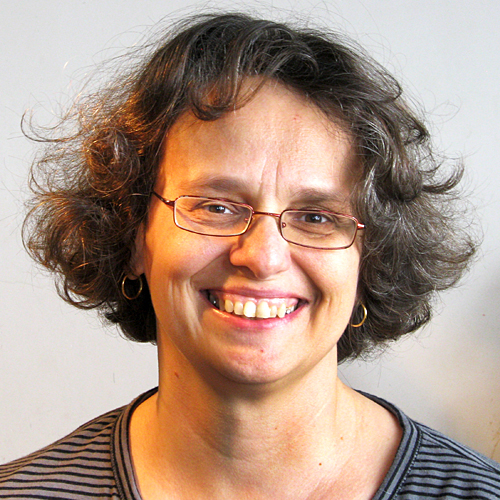
View Details / Enroll

Disorganized Infant Feeding: Beyond Suck, Swallow, Breathe

Jada Wright Nichols is an Atlanta-based women’s wellness consultant. She graduated from Tennessee State University, with a bachelor’s degree in speech pathology and audiology. She has a master’s degree in occupational therapy and has worked in a variety of rehabilitation settings, across the life-span.
Additionally, she is a massage therapist, lymphedema therapist, holistic nutritionist, birth and postpartum doula, yoga instructor, and international board-certified lactation consultant (IBCLC). She is a lactation consultant at Children’s Healthcare of Atlanta, and the owner of Blossom Health and Maternal Wellness, and Bloom Early Intervention, which provide in-home and virtual services for new and expectant families, as they navigate various aspects of parenting, access, and equity.
Suck swallow breathe coordination is one of the earliest and most meaningful motor milestones of a developing infant. That level of coordination varies between breastfeeding and bottle feeding. Too frequently, if there are any challenges while feeding at the breast, bottle feeding is recommended, often without a complete assessment around the challenge itself. Infant feeding may be disorganized for one of a variety of contributing factors. It is important to be able to identify one or more of those factors, and to facilitate a solution, which may include seeking the insight and intervention of another allied health professional. Honing observation skills, incorporating diagnostic tools, and coordinating feeding assessments and protocols with specialists assist in preserving the initial breastfeeding relationship, with equity.
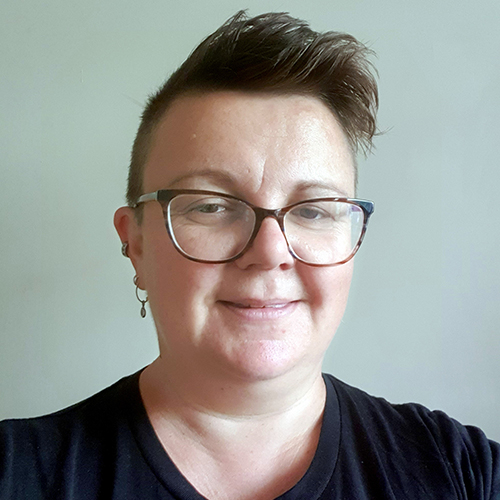

Kathryn Stagg is mum to 4 boys, twins and 2 subsequent singletons. She trained as a breastfeeding peer supporter and volunteered in the groups for years in and around Harrow, NW London, UK.
Kathryn caught the breastfeeding support bug and decided to further her knowledge training as a Breastfeeding Counsellor with the Association of Breastfeeding Mothers and then qualifying as an IBCLC 5 years ago.
Kathryn started Breastfeeding Twins and Triplets Facebook group almost 8 years ago and it now has over 9000 members. It has recently been made into a UK charity. Kathryn is passionate about delivering high quality breastfeeding support to as many twin and triplet families as possible, creating resources and educating health care professionals and breastfeeding supporters. She runs a small private practice and continues to teach music part time, her original career path. Kathryn is the author of Breastfeeding Twins and Triplets; a guide for professionals and parents.
/p>
Topic: Don't Let Us Fool You: Breastfeeding in Late Preterm and Early Term Babies - [View Abstract]
Late preterm and early term birth is a barrier to establishing breastfeeding. These babies are often well enough to stay with their mothers and treated like a full term baby. Yet they are often sleepy, uncoordinated and inefficient at the breast leading to a higher chance of unstable blood sugar, weight issues, jaundice and low milk supply. This leads to a high rate of supplementation. Skilled breastfeeding support is the key to helping these babies breastfeeding effectively. This presentation will discuss anticipatory guidance in relation to an early birth, how to protect breastfeeding during the first few days and weeks, and how to move towards exclusive breastfeeding should supplementation be necessary.
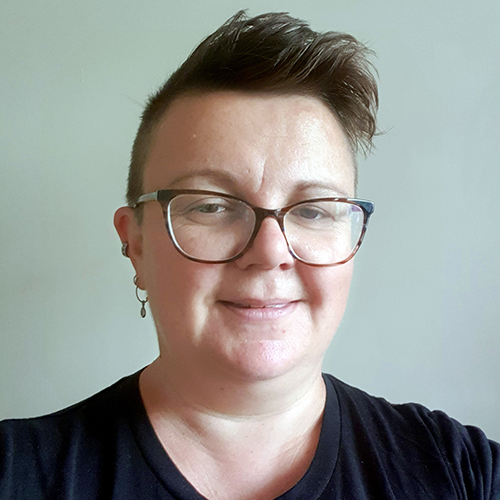
View Details / Enroll

Donor Human Milk and Human Milk Products in the NICU

After 37 years as an attending neonatologist and 18 years as medical director of lactation services, Nancy retired from clinical practice 2019. She graduated from medical school and did her training in pediatrics at the University of North Carolina, Chapel Hill. She did her fellowships in Neonatal-Perinatal Medicine and ECMO at UCSD Medical Center in San Diego. She has been a board-certified lactation consultant since 1988.
Nancy co-founded the San Diego County Breastfeeding Coalition in 1994. She was the Breastfeeding Coordinator for AAP CA Chapter 3 from 1992 until 2020, Board Member of HMBANA 2015-2019 and established the first Donor Milk Depot in San Diego over 25 years ago. Nancy is a past president of the Academy of Breastfeeding Medicine. She wrote, and continues to update, the very first ABM Protocol on Hypoglycemia and Breastfeeding.
In 2014 Nancy was awarded the Golden Wave Award by the California Breastfeeding Coalition for her efforts to reduce obstacles to breastfeeding in California, and the WIC Breastfeeding Champion Award in 2017. She received AAP Special Achievement Awards in 1997 and 2021 for her breastfeeding education and promotion efforts.
On a personal note, she is the mother of a (formerly breastfed) archaeology student and lives in San Diego, CA, with her significant other, their dog, Darwin, and a beautiful view of the ocean.
Topic: NICU Nutrition: Best Practice for Best Outcomes - [View Abstract]
Topic: NICU Nutrition: Current Status, Opportunities & Challenges - [View Abstract]
The preferred feeding for all NICU infants is human milk, preferably started on day 1. If mother’s own milk is not immediately available, the clinician should consider the use of heat-treated donor human milk (DHM), which has most of the properties of fresh human milk (immunoglobulins, growth and developmental hormones, enzymes, anti-inflammatory factors, etc.), is sterile, and reduces NEC while improving feeding tolerance. The use of human milk and human milk-derived products has been steadily increasing in world-wide NICUs. In many areas of the USA, it is the standard of care. We will explore the benefits and risks of various donor human milk products, as well as the cost-effectiveness, and challenges for NICUs in using these products.

View Details / Enroll


Courtney Polk is a registered nurse and International Board Certified Lactation Consultant. She is a native of New Orleans but currently resides in Dallas, Texas with her husband and their 2 children. Since graduating from Southern University School of Nursing in 2006, Courtney began her nursing career in labor and delivery and went on to earn a masters in nursing education in 2012. It wasn’t until having her son in 2014, and experiencing breastfeeding for herself that lactation became her focus and passion. Since becoming board certified she has helped countless families in the Dallas-Ft. Worth metroplex area meet or exceed their breastfeeding goals. Courtney is also the current president of the Dallas Lactation Consultant Association.
Donor milk is often an underutilized resource. Human milk donation has happened since the beginning of time through wet nursing and bottles. There are many reasons babies may need extra nutrition that their parents temporarily may not be able to provide. When supplementing becomes necessary donor milk can be a viable and sustainable option. However, many parents they have never heard of it and/or they don't know where to get it. Also, many parents have an abundance of milk and may not know what to do with it. This presentation will focus on how lactation professionals can do a better job of promoting donor milk and thereby promoting exclusive breastfeeding.
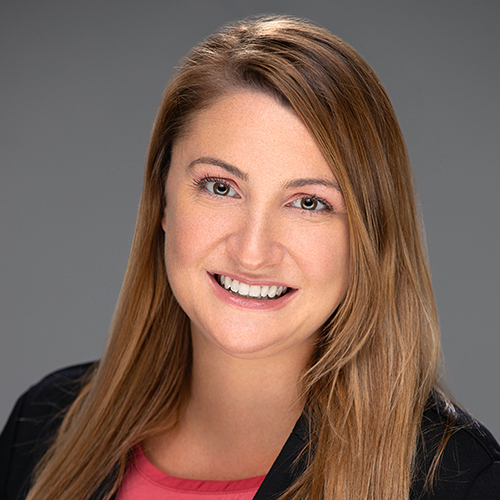

Dr. Jennifer Barnes is the Neonatal Intensive Care Clinical Pharmacy Specialist at Levine Children’s Hospital in Charlotte, NC. She has over 10 years of experience within the field. Dr. Barnes received her bachelor’s degree at Virginia Tech and her Doctor of Pharmacy at Virginia Commonwealth University’s Medical College of Virginia. She completed her pharmacy practice residency at Alamance Regional Medical Center- Cone Health. Dr. Barnes is board certified in pediatric pharmacotherapy. She is also an active member of the Pediatric Pharmacy Association (PPA) and is currently serving as the neonatology committee chair. Dr. Barnes serves as a clinical assistant professor for pharmacy advanced practice rotations for University of North Carolina, University of South Carolina, Wingate University and High Point University. Her current research areas of interest include the role of diuretics in bronchopulmonary dysplasia treatment and antibiotic stewardship for late-onset sepsis amongst other topics.
Topic: Get the LOW Down on Neonatal Hypotension - [View Abstract]
Topic: Starbucks for Babies? Caffeine Use in Neonates - [View Abstract]
Many premature infants spend months within neonatal intensive care units (NICUs). During their NICU admission, typical preventive care ideally should also be addressed. The Centers for Disease Control and Prevention (CDC) recommends that infants and children be vaccinated at the recommended schedule regardless of premature birth. In this presentation, we will review the different immunizations given in the first six months of life that are most relevant to patients in the NICU. Additionally, we will compare distinctive immunogenic and tolerability aspects for the term and preterm population. There is also tremendous growth in new vaccines and viral prophylaxis options coming to market soon. This presentation will also address these new agents and how they are pertinent to the NICU population. So don’t miss your shot to further your immunization knowledge.
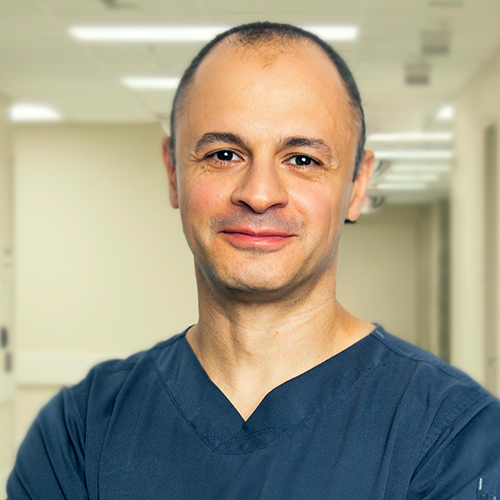
Early Breastmilk Exposure and Later Cardiovascular Health in Premature Infants

Prof EL-Khuffash is a Consultant Neonatologist and Paediatrician. He is a qualified International Board Certified Lactation Consultant. His two primary clinical and research areas of expertise are heart function in neonates and the promotion of breast feeding, and breast feeding support, to new mothers. He also has extensive expertise in general feeding issues encountered by babies over the first few months.
Prof EL-Khuffash sees families for prenatal breast feeding and fetal anomaly consultations and postnatal infant assessment, 2 and 6 week checks, and breastfeeding/general support including early irritability and reflux in his consultation rooms in the Rotunda Private Clinic.
Prof EL-Khuffash has considerable knowledge of breast feeding medicine and experience in providing antenatal and postnatal breast feeding advice and support to new mothers. This includes identifying and addressing challenges to breastfeeding in both the mother and the baby. He also specialises in general feeding difficulties and early feeding issues encountered by babies.
Prof EL-Khuffash graduated from Trinity College, Dublin in 2002 and enrolled in the Royal College of Physicians of Ireland paediatric specialist training scheme in 2005. He completed a Doctor of Medicine (MD) degree in University College, Dublin in 2008 and his neonatal specialty training in Toronto, Canada (2009-2011). Following this, he was appointed as a consultant Neonatologist and Assistant Professor of Paediatrics at the University of Toronto in January of 2011. He obtained a diploma in clinical epidemiology during his time in Toronto. He is the recipient of several national and international research awards, with international peer reviewed publications and keynote presentations and the lead for cardiovascular research, supervising several post graduate PhD candidates.
Topic: Mother's Own Milk Versus Donor Human Milk in the NICU: Practical Recommendations for Individualized Care - [View Abstract]
Premature infants have impaired cardiovascular function that persists into adulthood. Preterm infants exhibit impaired systolic and diastolic dysfunction that is intolerant of the adverse loading conditions experienced during the early neonatal period. Young adults born premature demonstrate a unique cardiac phenotype characterized by reduced biventricular volume, relatively lower systolic and diastolic function, and a disproportionate increase in muscle mass. This may clinically manifest by an increased risk of cardiovascular incidents, hypertension, and reduced exercise tolerance. Those consequences appear to result from early postnatal cardiac remodelling due to premature birth and associated comorbidities. Recent evidence suggests that early exposure to breast milk slows down or even arrests those pathophysiological changes, thereby mitigating the long-term adverse effects of premature birth on cardiovascular health. In this presentation, I aim to demonstrate the vital role of early breast milk exposure in preventing cardiovascular disease in preterm infants. We will explore the emerging evidence and examine the possible mechanistic pathways mediating this phenomenon.
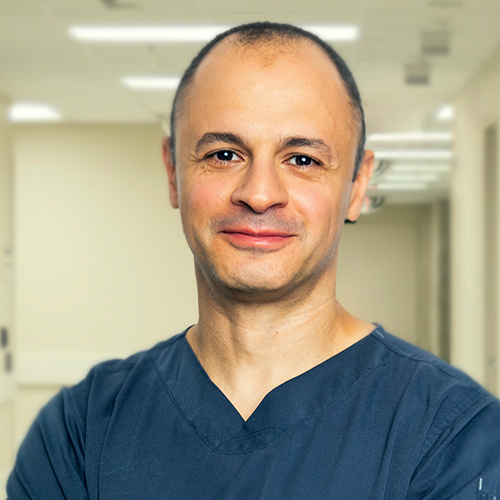
View Details / Enroll


Nim Tottenham, PhD is a Professor of Psychology at Columbia University and Director of the Developmental Affective Neuroscience Laboratory. Her research examines brain development underlying emotional behavior in humans. In particular, her laboratory investigates the interplay between brain development and caregiving experienced by humans. Her research has highlighted fundamental changes in brain circuitry across development and the powerful role that early experiences, such as caregiving and stress, have on the construction of these circuits. She has authored over 130 journal articles and book chapters. She is a frequent lecturer both nationally and internationally on human brain and emotional development. She is a Fellow of the Association for Psychological Science and of the Society for Experimental Psychologists, and her scientific contributions have been recognized by the National Institute of Mental Health BRAINS Award, the American Psychological Association’s Distinguished Scientific Award for Early Career Contribution to Psychology, and most recently by the National Academy of Sciences Troland Research Award and the Flux Congress Linda Spear Award.
Human brain development is very slow, but there is value to this slow pace. This pace maximizes the chances for learning from developmental experiences (for example, caregiving by parents) and by doing so, developing highly sophisticated emotional behaviors by adulthood. Brain circuitry involving the amygdala and medial prefrontal cortex (mPFC) support fundamental aspects of emotional behavior (learning about, responding to, and regulating emotions), and in this talk, I will present studies that describe their development, including functional magnetic resonance imaging data showing age-related changes in amygdala-mPFC circuitry. I argue that the development of this circuitry in humans is intimately associated with caregiving, such that parents exert significant and enduring neural modulation during development.
The findings presented are highly consistent with the animal literature showing both large changes in amygdala-mPFC circuitry throughout development, as well as the large influence of parental care in shaping this neural circuitry. This talk will focus on both typical development as well as development following caregiving-related stress showing that early life environments may influence development through learning and modification of developmental trajectories. These age-related changes will be discussed in terms of potential developmental sensitive periods for environmental influence.







